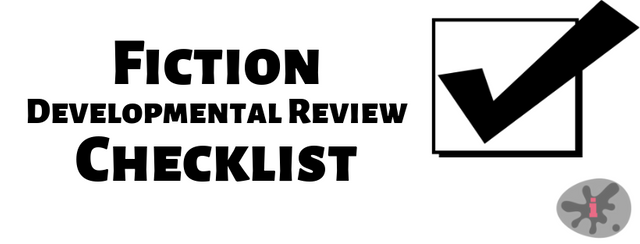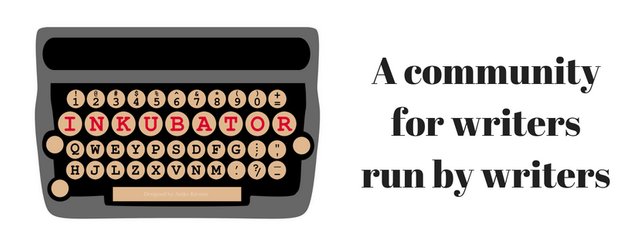Fiction Developmental Review Checklist

As a less experienced writer, it can be difficult to know how to provide developmental feedback to your peers. You may feel insecure about your abilities and concerned you're telling people the wrong things.
Grammar feels safe and easy--the rules there are more clear cut. But there is no point doing detailed edits on word usage and punctuation in an early review phase where structural changes might require revision or removal. Commenting on a deeper level is scary and overwhelming. You might not even know where to start.
But you've come in contact with stories your entire life, be it through reading or through graphic novels or movies. Good developmental editing looks at the impact the story can have on the reader and where it can be stronger. So you can use your reader perspective, as well as your growing writer talents, to support your critique partners.
The following is intended as an initial developmental review checklist to help guide and support critique partners and peer review group members. It can also be useful for authors looking over their own work after a rest period. However, it is by no means exhaustive and has been developed primarily with shorter fiction in mind, although easily applied to longer works.
If some of the terminology is unfamiliar, resources abound for learning the basic definitions. Focus more on the concepts behind them than fancy labels. Mastering the labels can come later. But we've used them here to avoid cluttering the check list with explanations.
POV
- Is the POV clear and stable?
- Is the POV appropriate for this piece or might another POV--or the POV of another character--be more effective?
- If the narrator changes, are you able to follow the changes without confusion? Does it change too often for your reading comfort?
- Point out any POV breaks you notice, especially if it switches for more than one sentence.
Characterization
- Do the characters have sufficient depth?
- If not too small a story fragment (like only a chapter of a novel) for evaluation, does at least the main character have a character arc?
- What about other characters? Do enough detailed characters, like antagonist and side characters, have a clear character arc? This applies primarily to longer works.
- Are the characters realistic and credible?
- Do included thoughts and dialogue match the characterization?
- Is each character sufficiently consistent in behavior and description?
- Are the main characters making choices to influence what happens to them? Do they have sufficient agency to appeal to the reader?
- Is what the main character needs to learn clear?
Plot
- Does the progression of events make sense?
- Is there sufficient plot to make the story satisfying to read?
- Are the major plot lines resolved enough by the end that we feel like we read a complete story?
- Does the plot (the external part of the story) balance well with the character arcs (the internal part of the story)?
Structure
- Does the story start at the right time?
- Does the opening line/para/scene have enough hook to pull in readers?
- Do the scenes included drive the plot or characters forward and have sufficient connection to warrant their inclusion?
- Are scenes or sections included that shouldn't be or are there things missing that need to be there?
- If you notice background or info dumps that don't blend well with the story or feel out of place or too long, mark this and explain what impact it has on you when.
- How is the overall pacing? Are there times where things move too slowly or too quickly?
- Are scene breaks and transitions clear and appropriate?
Setting
- Is enough detail provided about the world or setting of the story? You can leave notes anywhere you feel lost or confused about the world (like if unfamiliar terminology jolts you out of the story or you feel confused in a way that impacts your reading experience negatively) or at the end with your overall impressions.
- Are there times the setting takes over and detracts from the character or plot?
- Is the world building consistent?
- Are there things you don't know that you feel you need to to enjoy the story? For example, in a fantasy piece, do you understand enough of the magic of the world to feel like it makes sense?
Other
- Suspension of disbelief. Within the context of the story, are there times things are too incredible to believe? Does something jolt you out because you have trouble believing it in this context?
- If reading for fun, would you have read the entire story? If you would have wanted to put a story down at some point or given up on it, please note where you would have stopped and why. This type of feedback is extremely useful.
- Does the tone and style match the content of the story?
- Is the verb tense mostly consistent and is it a good choice for this story? For example, are some sections in present tense and some in past? If present tense is used, does it result in too many awkward moments?
- Are there issues that keep you from getting into the story as a reader, such as recurring use of filters or other things that remind you you're reading a story?
- Are there recurring problems in the prose that it would be helpful to make the author aware of now while he or she is making big changes anyway? For example, the repetitive use of then for than or lay for lie? Also recurring challenges with comma splices, overuse of italics or exclamation marks, and other things like that.
- Also point out things like overuse or underuse of dialogue tags, repetitive sentence structure, and overly long paragraphs. But only once or twice, not on each incident. Educate instead of edit.
- Note a tendency to overuse passive voice, weak language, or rely on repetitive phrases or cliches. Again, only point it out once or twice in a fashion like, "watch for X when revising. I've noticed it a few times."
- Show vs. tell issues, especially where a paragraph or section is more telling than showing.
- If you're aware of them, are there any concerns related to the genre? For example, if it's supposed to be a mystery but feels more like a thriller. Or if it's marked a mystery but reads like a romance. Then the author can decide where to change the genre and where to change the story.
Positive Feedback
The importance of this section cannot be underestimated. No matter how constructive our comments are, critique is a very painful process for the writer. We need to include highlights of the strengths of the piece to help maintain balance. Also authors need to know what is working so strengths aren't sacrificed in the revision process.
- What did you like best about the piece?
- Point out any especially powerful lines or sections that really impacted you.
- Is there anything positive you think should be given more focus or attention than it has now?
- What do you least want the author to change while revising?
- Consider the points where you looked for negatives. Did the author show greater skill in any of these areas than others? Don't just rely on the absence of negative feedback--tell them what they did well.
All writers struggle to edit their words. As authors, we know what we mean and our brains are prone to filling in the pieces when information is missing or not well-explained. Ideally this checklist can be used by a critique partner or a peer review group member. If you don't already have a tribe of authors to share your work with--or if you want more to get new perspectives, you're welcome to check out INKubator and see if we might fit your needs. Read more about us and feel free to drop in on our server and try us out. If we're not right for you, you can always leave again.
Posted from our blog with SteemPress : http://inkubatorcommunity.com/fiction-developmental-review-checklist/
Interested in our community? Follow the link below.

I focus my posts on travel and veganism but when I read your tips I see that I keep doing same mistakes all over. I agree with you that when you write something it does make sense to you. You don't write it to confuse the readers :) And it's always good to have someone read your words and provide you with the constructive feedback. This might be a painful process for both side.
I like how much detail you provided about the review process. Especially the part with 'Other' got my attention as there are many useful tips. When I think about my school days I'm sure that our teacher didn't go so deep into the texts written by kids. Otherwise the marks would be very different :)
Thank you for sharing such detailed analysis!
Once you become aware of your habits, it's far easier to change them. Letting a piece rest for at least a day, if not a week or month, can make a big difference in how easily you can see your own flaws. Also be honest with yourself about where you are in your writing journey. You might not be ready to tackle everything at once. Focus on a few areas at a time then move on when you've strengthened your skills.
I think that your first sentence can be applied for many things other than writing ;) It's a good tip!
Thank you for getting back to me and for your suggestions.
A great summary checklist. Writers should print this off and have it tacked next to their monitor when they're writing (or next to their notebook/pen, if they're going old-school)
Good idea! Great to keep in mind when writing, not just editing.
This is essential advice when editing. Without a decent foundation like this one, you can polish your stories as much as you want, they'll never shine.
Very true. Fixing grammar and punctuation is the easy part. This is the hard part.
I definitely need to make this into a feedback template next time I do larger dev or beta review!
Anyone getting that feedback would be lucky.
Nice, comprehensive list! Thank you for sharing it.
You're very welcome. You'd also be welcome to check out our community and see if it appeals to your writery tendencies. ;-)
Hi ink-ubator,
Visit curiesteem.com or join the Curie Discord community to learn more.